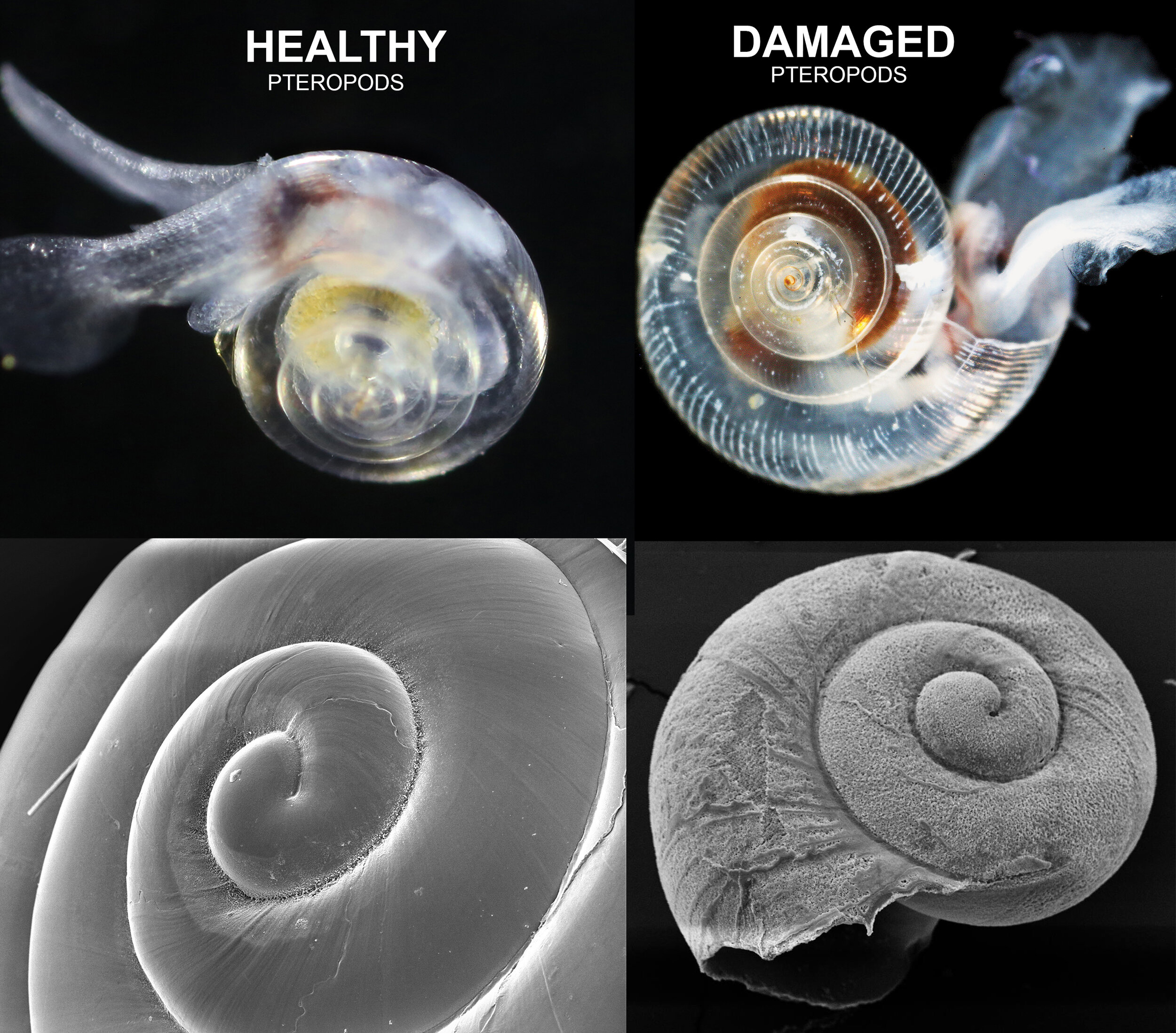Ocean Acidification is projected to have a major impact on marine ecosystems and resources in the years ahead. A recent SeaDoc-funded study determined the biological risks facing the estuarine system of the Salish Sea if current levels of human-caused Ocean Acidification exposure are maintained.
Through years of groundbreaking science, Nina Bednaršek, who led the team that conducted the study and was awarded SeaDoc’s 2018 Salish Sea Science Prize, discovered that tiny marine mollusks called pteropods could be used to understand the biological effects of Ocean Acidification—a growing threat due to human-caused pollution. Pteropods, whose shells deteriorate with increased acidification, are an indicator species for the ecosystem as a whole.
Bednaršek’s team’s latest study, published in the July issue of Frontiers in Marine Science and funded by SeaDoc, compared the chemical and biological impacts related to the magnitude, duration, and severity of exposure to levels from the pre-industrial era. Her team further investigated the individual effects of atmospheric CO2 uptake and issues related to a surplus of nutrients in the water, often due to polluted runoff from land to evaluate which of these two has more relevance.
“The study indicates that these human-made stressors can increasingly change marine chemistry,” said Bednaršek. “That affects marine life’s ability to survive.
Pteropods and crabs are already experiencing negative biological impacts.
Next, Bednaršek and her team will try to match modelling predictions with biological observations to confirm the modelling results. Those findings will also help refine the models for future observation.
“It is important to note that most of the changes are because of the uptake of atmospheric CO2 in the water and not nutrient pollution and that defines a clear strategy on moving forward to preserving marine ecosystems and habitats that are under increasing climate change impact,” said Bednaršek.
She is of the opinion that although COVID-19 temporarily put a halt to the emission, such changes are not substantial in terms of reversal of trends; instead coordinated efforts of scientific, economic and legal tools will be needed to tackle this complex issue.


